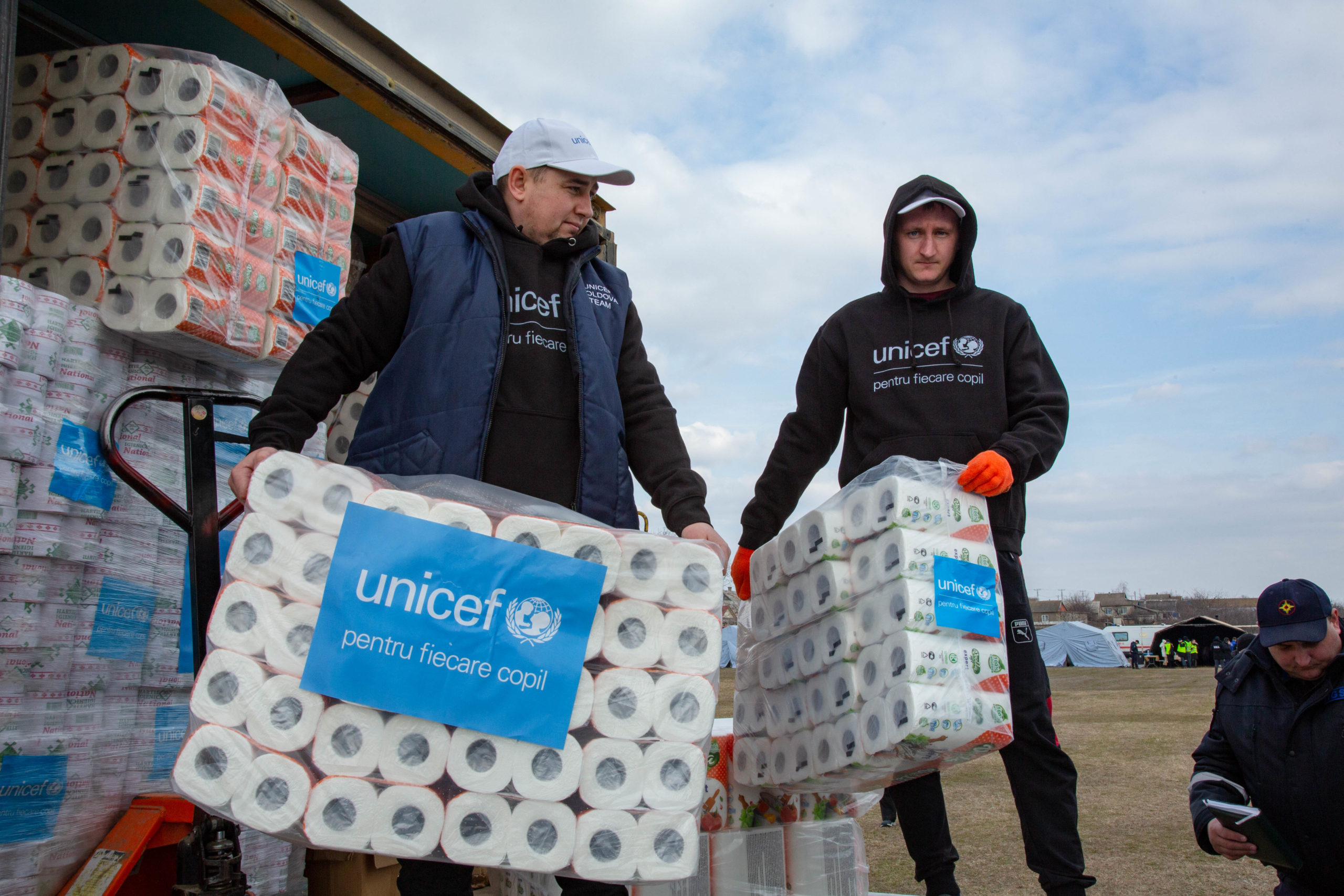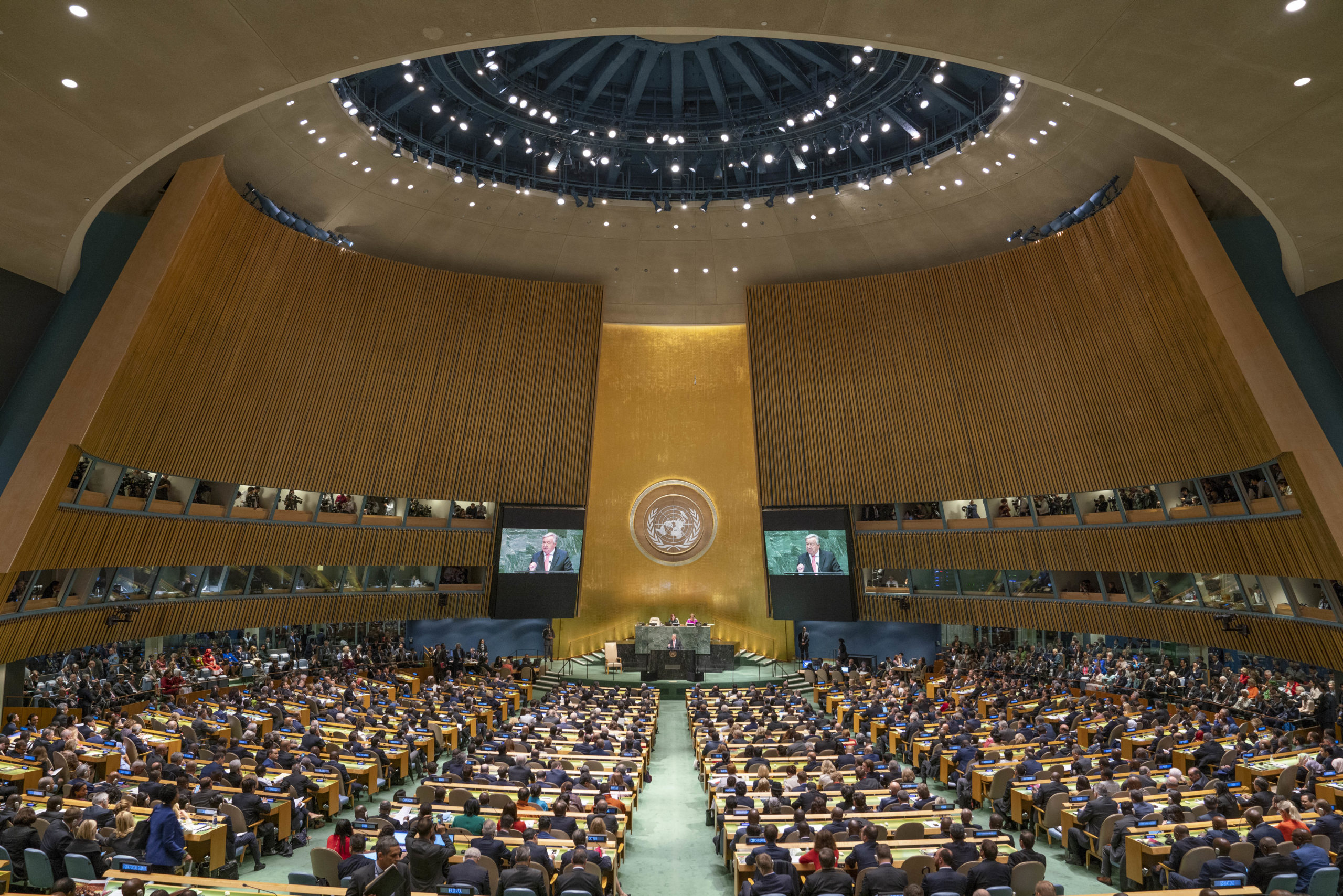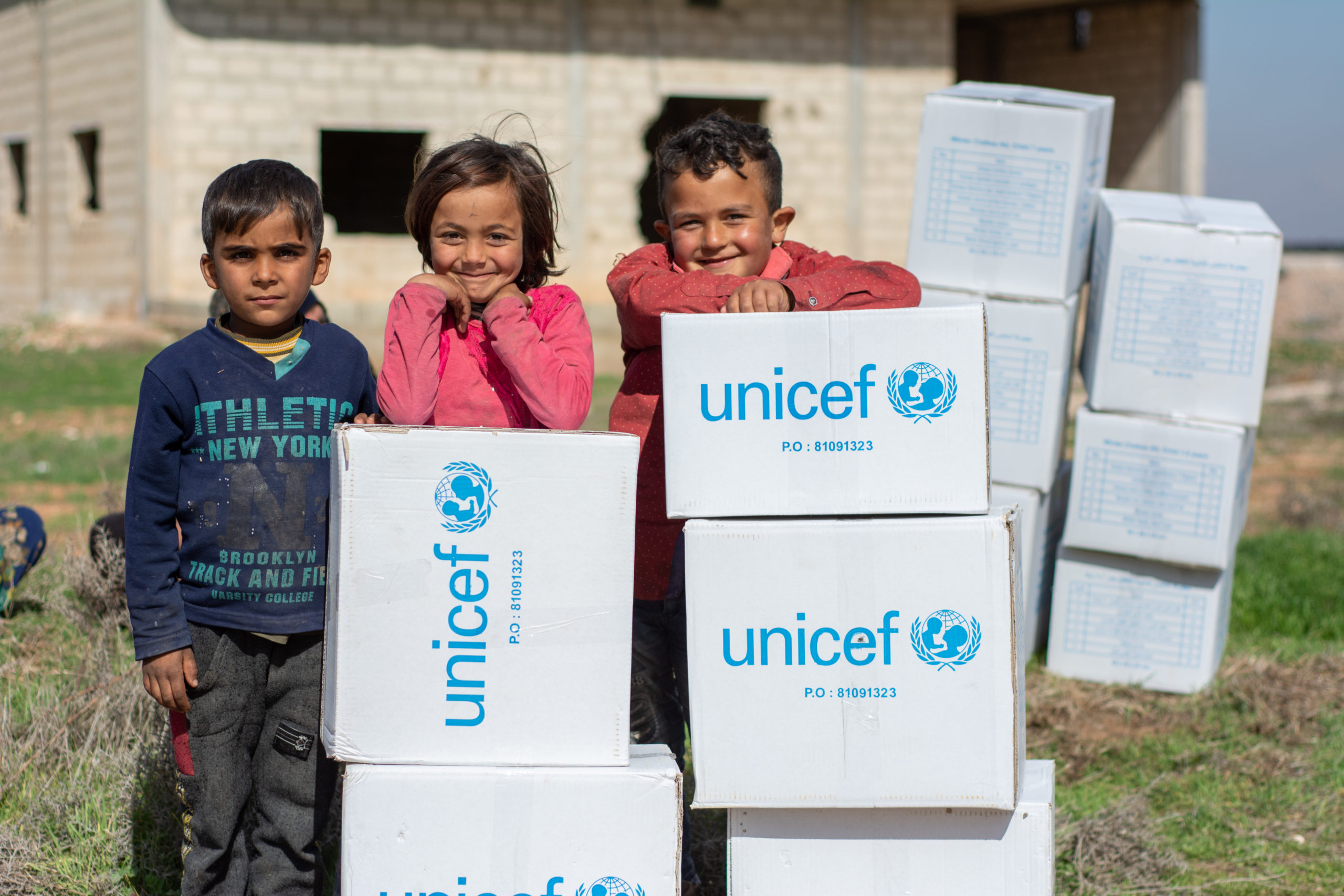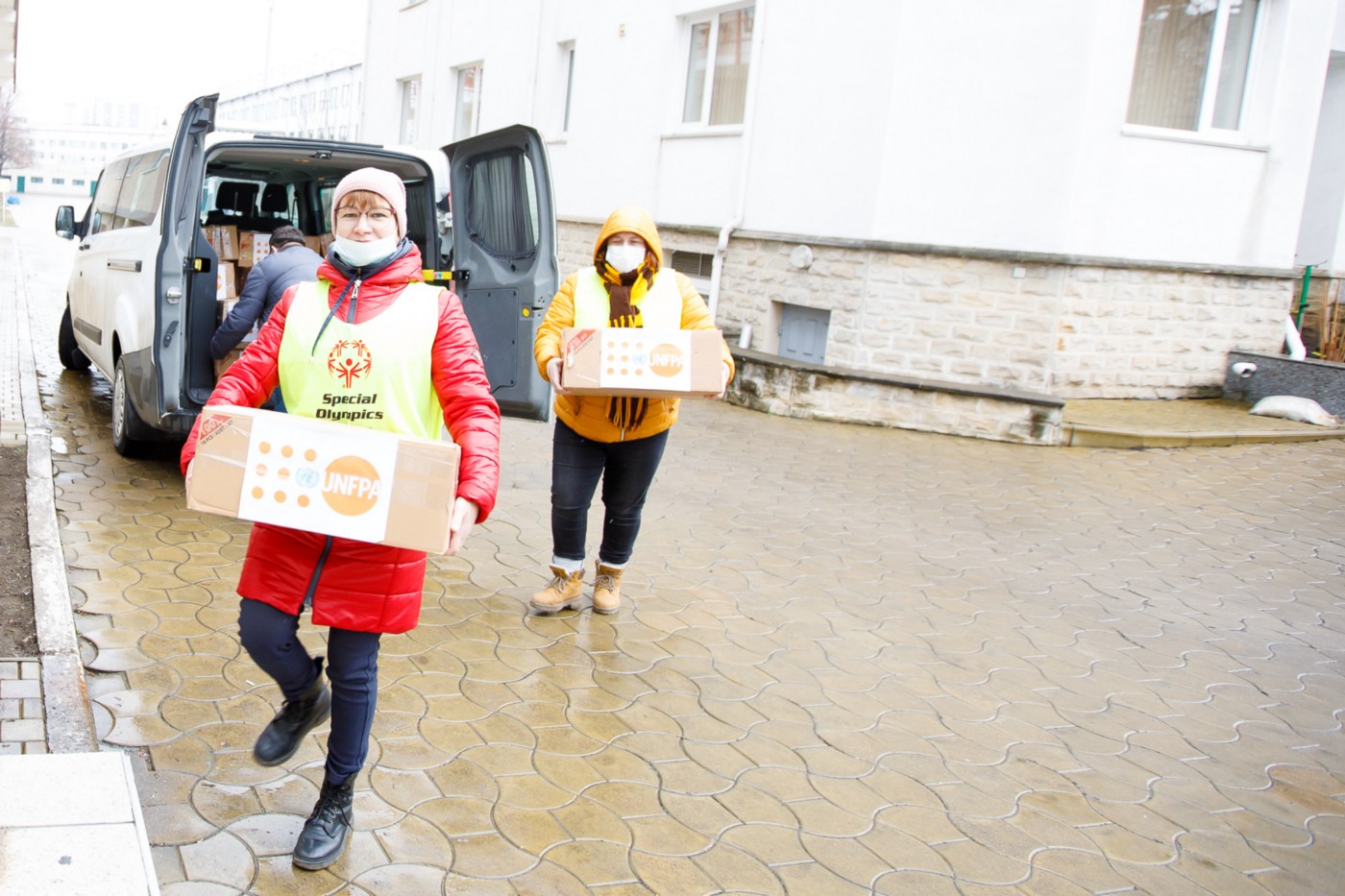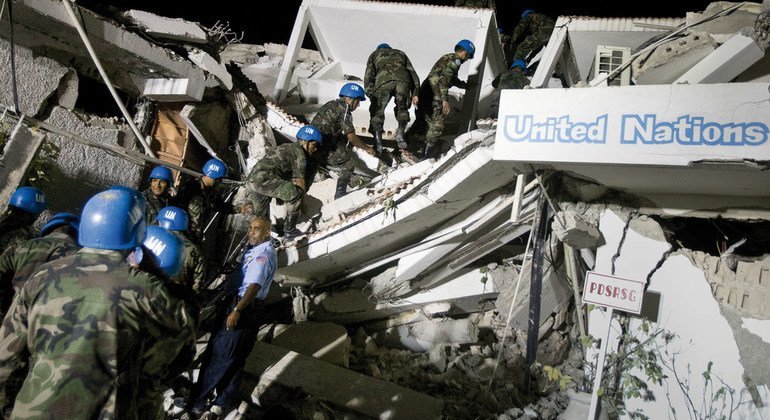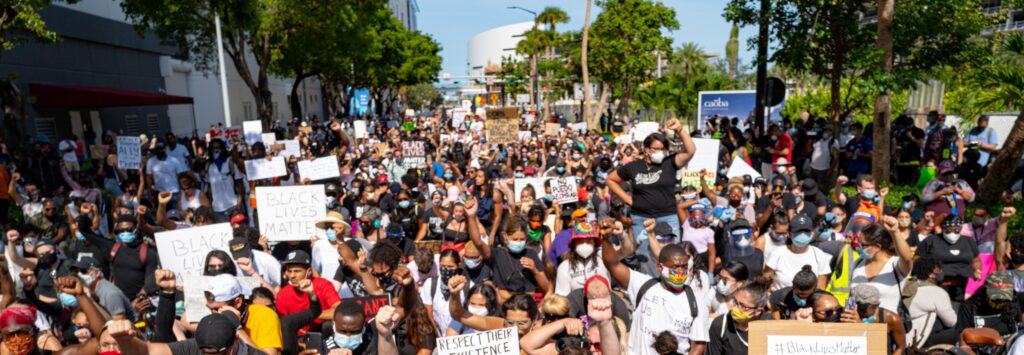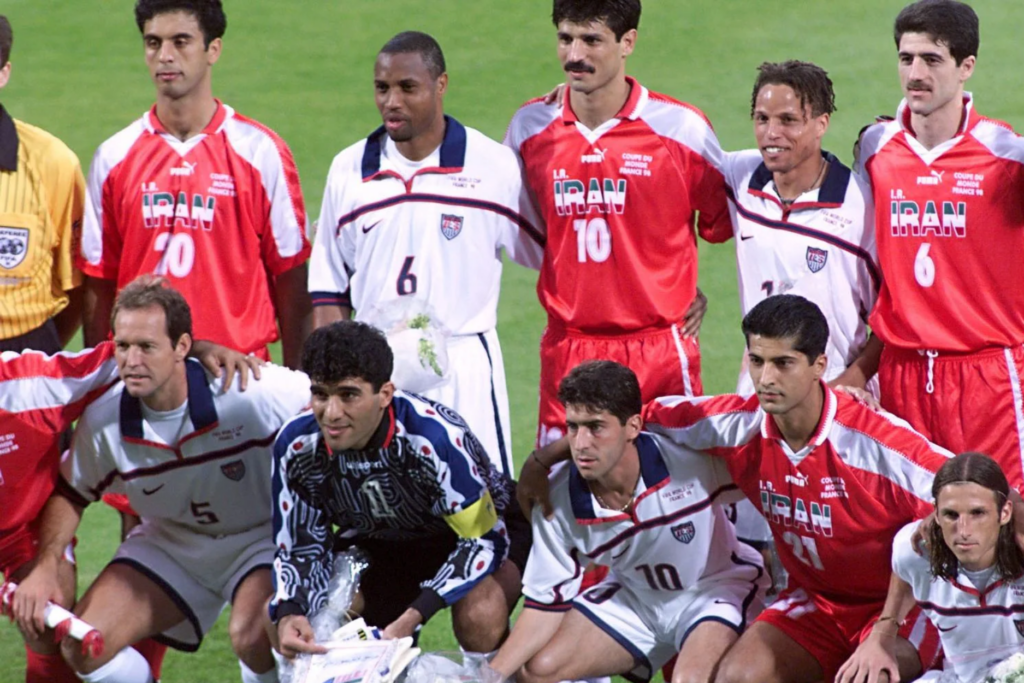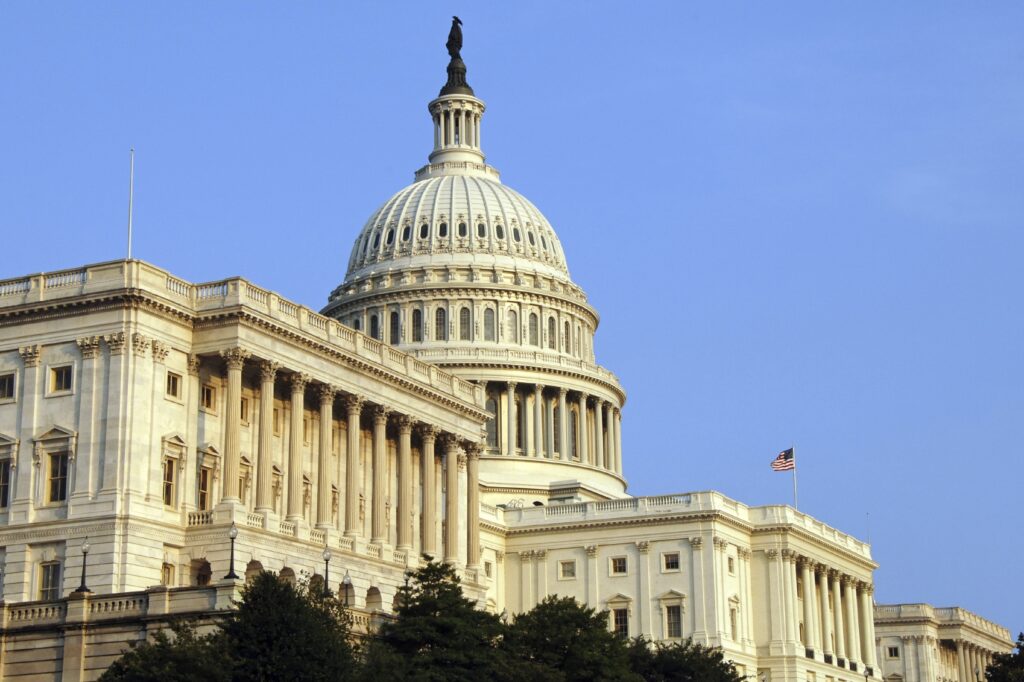The war in Ukraine has brought into sharp focus the role of the United Nations and raised a series of questions about what the organization is doing in country to respond, the actions of the Security Council, whether the UN can isolate Russia, whether there are any peacekeeping options, what happens if a settlement is reached, and will there be any accountability for alleged war crimes? Provided below are answers to these questions and more with the most up-to-date information as of July 2022.
1. Is the UN present in Ukraine and what have they done to alleviate suffering?
Yes, a range of United Nations entities are in Ukraine, with more than 1,200 national and international UN personnel present in country. UN officials have made clear they intend to stay, reduce the horrific suffering, scale up the humanitarian response, and continue to advocate for the protection of civilians.
Provided below is a snapshot of UN humanitarian assistance:
- The World Food Programme, the world’s largest humanitarian agency, has reached over 9.6 million people inside Ukraine since the war began in March. The World Food Programme assisted with ready-to-eat rations, canned goods, bread, wheat, flour, and oil – with part of that aid coming via the support of the U.S.
- The UN Children’s Fund (UNICEF), which is staffing and operating warehouses in Ukraine, since February 24, 3,890,177 people in Ukraine have been able to access health care as a result of supplies distributed, either directly by UNICEF or in partnership with implementing organizations – including first aid kits, midwifery kits, and early childhood and recreational kits.
- The UN Population Fund (UNFPA) has created mobile teams offering medical personnel in maternal and sexual reproductive health, as it expected that 80,000 children would be born in Ukraine from March – May. Separately, UNFPA is using its existing network of shelters and crisis rooms – established decades before the start of the military offensive – to respond to the needs of women fleeing their homes from gender-based violence (GBV). UNFPA and the International Organization for Migration (IOM) also offer GBV hotline services and have provided more than 15,000 consultations between February 24 and March 24.
- The World Health Organization (WHO) has delivered nearly 543 metric tons of trauma and emergency medical supplies, as well as oxygen generators and generators to maintain electrical supply. WHO is also working with neighboring countries to prevent, identify and rapidly respond to outbreaks of vaccine-preventable diseases, including measles, rubella and polio.
- The UN Refugee Agency (UNHCR), operating in Ukraine since 1994, has been delivering core relief items such as blankets, sleeping mats and emergency shelters and identifying people in need of particular assistance, such as children travelling alone and people with disabilities. Working with Ukrainian authorities, UNHCR is helping run over 70 reception centers across the country for internally displaced people, where individuals receive cash assistance to cover the costs of basic needs like accommodation, food, clothes and hygiene items.
- • In recent weeks, the above-named UN agencies have partnered together for multiple humanitarian aid convoys to cities under siege. The humanitarian notification system with Ukraine and the Russian Federation is facilitated by the Office for the Coordination of Humanitarian Affairs (OCHA). For these convoys to be successful, OCHA requires all parties to agree to the exact terms of humanitarian pauses — including the route, the start time, and the duration — for the safe delivery of assistance and the evacuation of civilians.
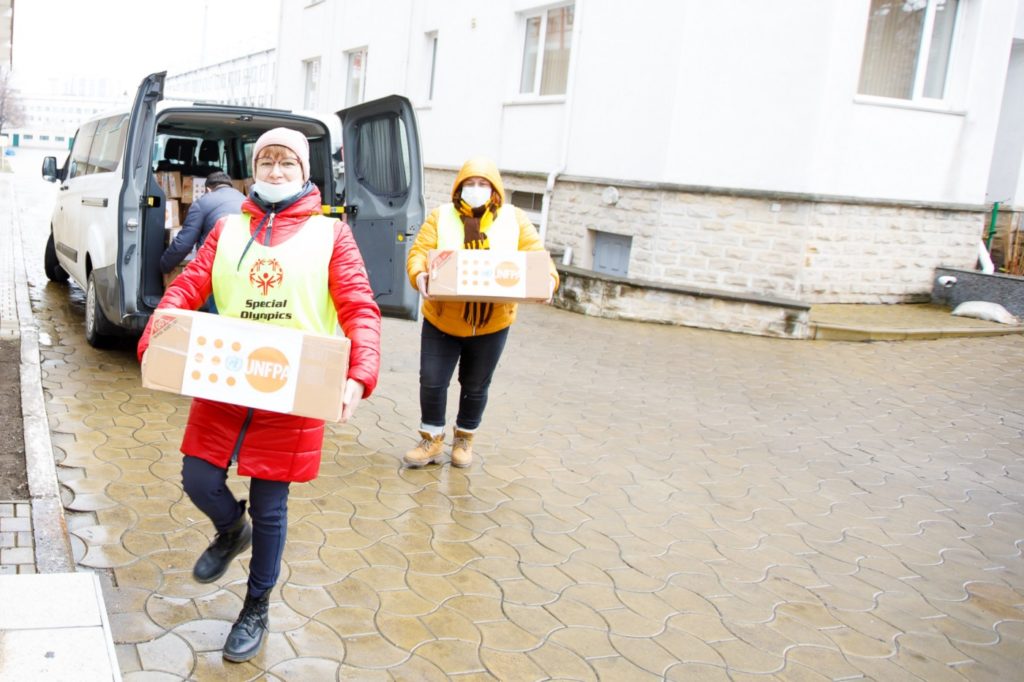
2. What are the current estimates for those in need, those displaced, and what is the UN doing to rally support?
- The war has caused the fastest and largest displacement of people in Europe since World War II, with nearly 12.8 million people estimated to have been displaced in Ukraine according to UNHCR. According to UNHCR, over 7 million are displaced inside Ukraine and 4 million people have been forced to flee the country. UNICEF notes that a Ukrainian child has become a refugee almost every second of the war, and more than 1.8 million children have now fled. These numbers are rising daily. Tragically, some 15 million people are estimated to be stranded in affected areas or unable to leave due to heightened security risks, destruction of bridges and roads, as well as lack of resources or information on where to find safety and accommodation.
- While continuing to raise awareness and funds for emergencies and imploring Member States not to divert money already pledged to other countries, the UN has launched two coordinated emergency appeals calling for $4.1 billion to help people across Ukraine and beyond.
- Within Ukraine, $2.2 billion to meet the escalating humanitarian needs. (As of July 22, the appeal is 93 percent percent funded.)
- Outside the country, $1.85 billion to help Ukrainians who have fled across borders, principally to Poland, Hungary, Romania and Moldova.
- Since the flash appeal launched on March 1, the UN and humanitarian partners have reached at least 8.1 million people.
3. What is the UN doing to mitigate against a nuclear or biological weapons disaster?
- The International Atomic Energy Agency (IAEA) is closely monitoring developments with a focus on the safety and security of Ukraine nuclear power plants. In light of Russian forces withdrawing from the Chernobyl Nuclear Power Plant, IAEA Director General Grossi recently traveled to the plant and had inspectors install new radiation monitoring equipment. This was the first in a series of such nuclear safety and security missions he plans to send to the country, which has 15 operational nuclear energy reactors at four sites in addition to the Chernobyl plant. In terms of current safeguards, the agency receives remote data transmission from the monitoring systems they installed at four of Ukraine’s nuclear power plants.
- With respect to the threat of biological weapons, due to the UN supported 1972 Biological Weapons Convention – to which both the Russian Federation and Ukraine are States Parties – Member States are not aware of any biological weapons programs in Ukraine.
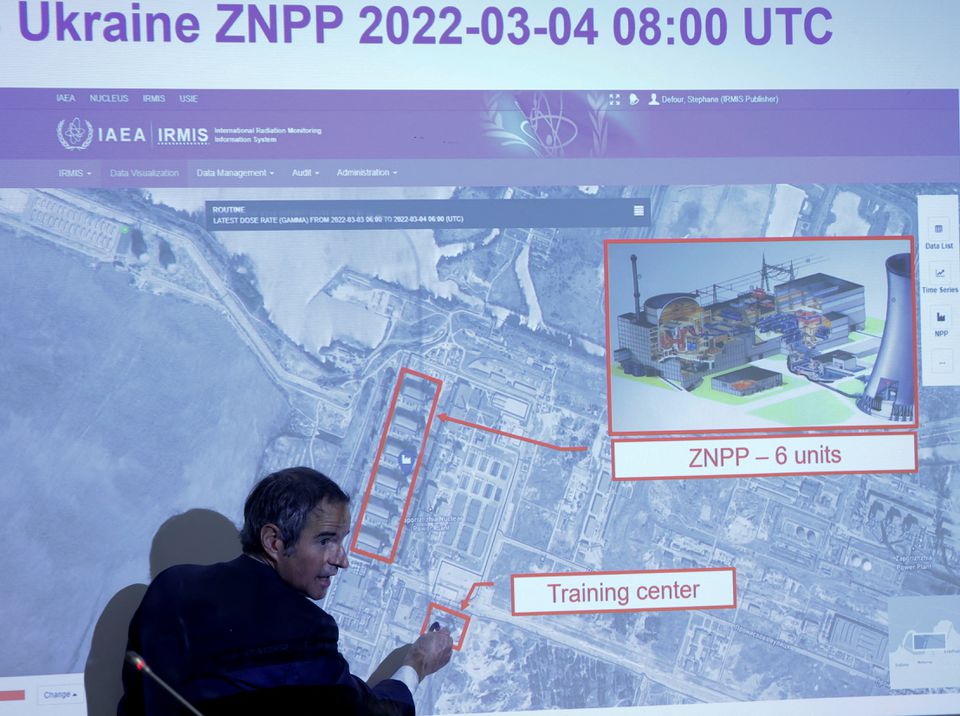
4. What has the UN done to isolate Russia?
There has been recent progress in the General Assembly. One, Liechtenstein just led a resolution that raises the cost of exercising a veto, by requiring a permanent five-member to justify their vote. U.S. Ambassador to the UN Linda Thomas-Greenfield called it a “significant step toward the accountability, transparency and responsibility” of countries with veto power.
Two, earlier in April, and for the first time, U.N. Member States kicked out a permanent member of the Security Council — Russia — from a U.N. body, the Human Rights Council. U.S. Ambassador to the U.N. Thomas-Greenfield led that charge, which had also been encouraged by a bipartisan group of senators. While Russia “blatantly” threatened countries who might vote for their removal, 93 countries supported the resolution.
Three, in March, 141 countries voted for the full withdrawal of Russian forces, most citing Russia’s violation of the U.N. Charter, which provided an “irrefutable legal standard of aggression around which to rally international support.” President Zelensky hailed the outcome saying, “The world is with us.”
Similarly, on March 4, the Human Rights Council passed a Ukraine-sponsored resolution to establish a Commission of Inquiry (COI) to investigate human rights violations and war crimes. The vote was 32 to 2. Ukraine’s U.N. ambassador warned Russia, “The evidence is going to be collected; you are going to be identified, and you are going to be held to account.”
Similarly, on March 4, the Human Rights Council passed a Ukraine-sponsored resolution to establish a Commission of Inquiry (COI) to investigate human rights violations and war crimes. The vote was 32 to 2. Ukraine’s U.N. ambassador warned Russia, “The evidence is going to be collected; you are going to be identified, and you are going to be held to account.”
5. What has the Security Council done to thwart Russia and end the war?
While the UN Secretary-General has repeatedly urged the Security Council to end the war and recently traveled to Russia and Ukraine, the harsh reality is the Council is unlikely to do so, due to the longstanding veto power of the five permanent members – the U.S., Russia, China, France, and the United Kingdom. This provision, put forward by the U.S. and the Soviet Union after World War II, means it’s exceedingly difficult to prevent powerful states from using force when they see fit. For example, the Security Council could not stop the U.S. decision to invade Iraq in 2003, widely viewed as violating the U.N. Charter. Nor could the Security Council take meaningful action against Syria because of the Russian veto, a situation being repeated now, which Ukrainian President Volodymyr Zelensky understandably denounced in his April 5 council speech. During his remarks, President Zelensky called on the body to remove Russia, but there is no provision or mechanism to remove a permanent member of the Security Council written into the UN charter.
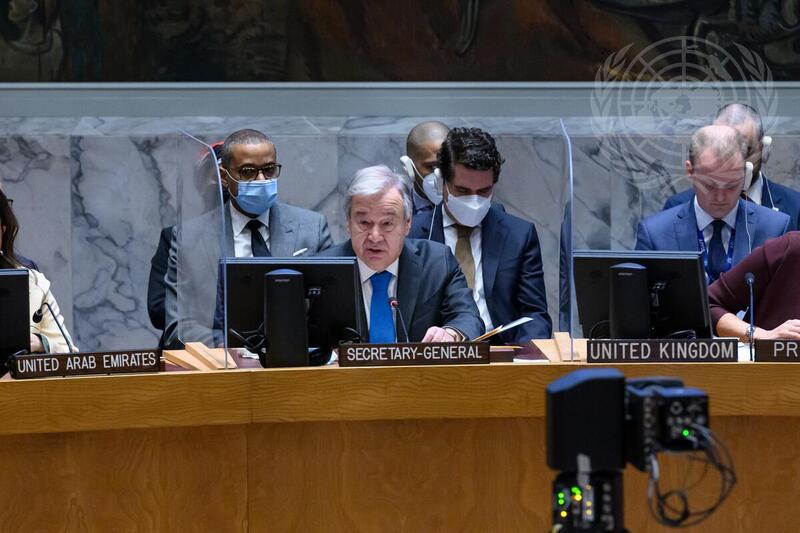
6. So, what can the international community do to manage the conflict?
There are options but no easy ones. The UN Charter does say that countries that are party to a dispute — as Russia is here — have to abstain on any Security Council resolutions regarding peaceful settlement of the conflict. But as UN analyst Richard Gowan explains, “Neither the United States nor any of the other permanent five (P5) members of the Council are likely to want to create precedents for limiting their own veto powers in future.” More broadly, Gowan also recently analyzed the variety of peace operations available. These operations exist on a spectrum “ranging from lightly armed civilian peace observation to robust peace enforcement operations, such as those NATO deployed to Kosovo and Afghanistan.” Each is fraught and lack significant buy-in. While Member States have not come to any consensus on a viable peace operation, they have worked together in enacting increasingly onerous sanctions on Russia, and research has shown that multilateral sanctions are much more likely to be effective when they are implemented by international organizations.
7. If the UN’s central mandate is to prevent war, then hasn’t the war in Ukraine made clear the UN has failed?
- As written in the 1945 United Nations Charter, the organization’s first core responsibility is “to save succeeding generations from the scourge of war.” In the years since and certainly now, some have questioned how well the UN has lived up to this charge. In actuality, recent research has shown that the UN has been quite effective at suppressing conflict throughout its history.
- One landmark study – conducted by researchers at Dartmouth and Ohio State and which analyzed more than 65 years of General Assembly voting records – documented how the UN provides a forum for diplomacy to prevent war i.e. the process of nations working together over time builds trust and facilitates fast, transparent communication that increases the chance of resolving crises peacefully.
- This study also complements research showing the clear efficacy of the UN in stopping conflict once it has commenced. For example, a recent article in Foreign Affairs, titled the “Astonishing Success of UN Peacekeeping,” explains that, “Decades of academic research has demonstrated that peacekeeping not only works at stopping conflicts but works better than anything else experts know. It succeeds at protecting civilian lives and reducing sexual and gender-based violence. And it does all this at a very low cost.” Research by RAND has also found that peacekeeping is an “effective means of terminating conflicts, insuring against their reoccurrence, and promoting democracy.” Furthermore, a recent National Defense University report on Strategic Competition and UN Peacekeeping suggests that strong support of UN Peacekeeping by the U.S. would provide a competitive and strategic advantage relative to Russia (and China).
8. What will be the role of the UN and international organizations assuming a settlement is reached?
As has been the case for decades, the UN and other international institutions will almost certainly play a key role in containing the conflict and determining how a settlement can be achieved and enforced. As outlined here, international organizations can help both devise and verify the implementation of agreements, monitor elections, govern how potential prisoners of war are treated, adjudicate post-conflict justice, and (de)legitimize any border changes that may ensue from this conflict.
9. Will there be any accountability for alleged war crimes by Russia?
- In late February, the International Criminal Court (ICC) stated it will open an investigation of war crimes in Ukraine. ICC Prosecutor Karim Khan has already visited Ukraine as part of the investigation and sent his staff to the region to gather evidence. While Russia is not a member of the ICC and its authorities are not bound to cooperate with the court, under the court’s rules governing its jurisdiction, the ICC prosecutor has a mandate to impartially investigate allegations of crimes committed in Ukraine by all parties to the conflict, regardless of the nationality of the person allegedly responsible. Liability for these crimes is not limited to those who carry out the acts, but also those who order, assist, or are otherwise complicit in the crimes.
- Plus, the UN High Commissioner for Human Rights Michelle Bachelet has several dozen human rights monitors in Ukraine, gathering information on human rights violations. For example, her office is looking into allegations that cluster munitions have been used in populated areas of Ukraine dozens of times, predominantly by Russian forces. As of April 7, UN monitors also verified 90 incidents where hostilities impacted medical facilities, including 54 hospitals. Ukrainian ambassador Yevheniia Filipenko recognized Commissioner Bachelet for describing “in appalling details the horrors of Russia’s assault on Ukraine and the war crimes committed.”
- The Office of the High Commission for Human Rights (OHCHR) has issued regular civilian casualty updates since the start of the armed conflict. As of July 12, they had recorded 11,544 civilian casualties in the country: 5,024 killed and 6,520 injured. OHCHR believes that the actual figures are considerably higher, as the receipt of information from locations experiencing intense hostilities has been delayed.
